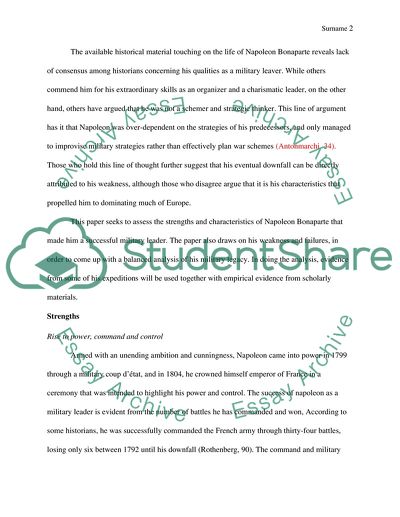Cite this document
(“Strengths and Weaknesses of Napoleon as a Military Leader (research Essay”, n.d.)
Retrieved from https://studentshare.org/history/1640682-strengths-and-weaknesses-of-napoleon-as-a-military-leader-research-paper
Retrieved from https://studentshare.org/history/1640682-strengths-and-weaknesses-of-napoleon-as-a-military-leader-research-paper
(Strengths and Weaknesses of Napoleon As a Military Leader (research Essay)
https://studentshare.org/history/1640682-strengths-and-weaknesses-of-napoleon-as-a-military-leader-research-paper.
https://studentshare.org/history/1640682-strengths-and-weaknesses-of-napoleon-as-a-military-leader-research-paper.
“Strengths and Weaknesses of Napoleon As a Military Leader (research Essay”, n.d. https://studentshare.org/history/1640682-strengths-and-weaknesses-of-napoleon-as-a-military-leader-research-paper.


